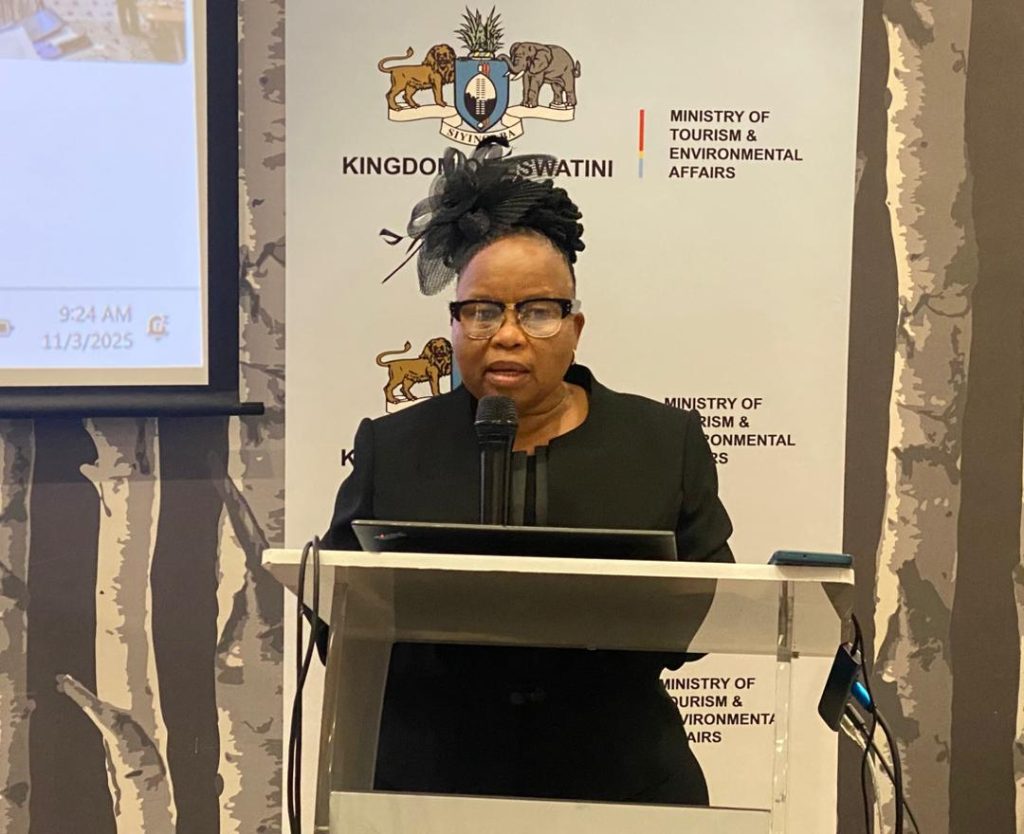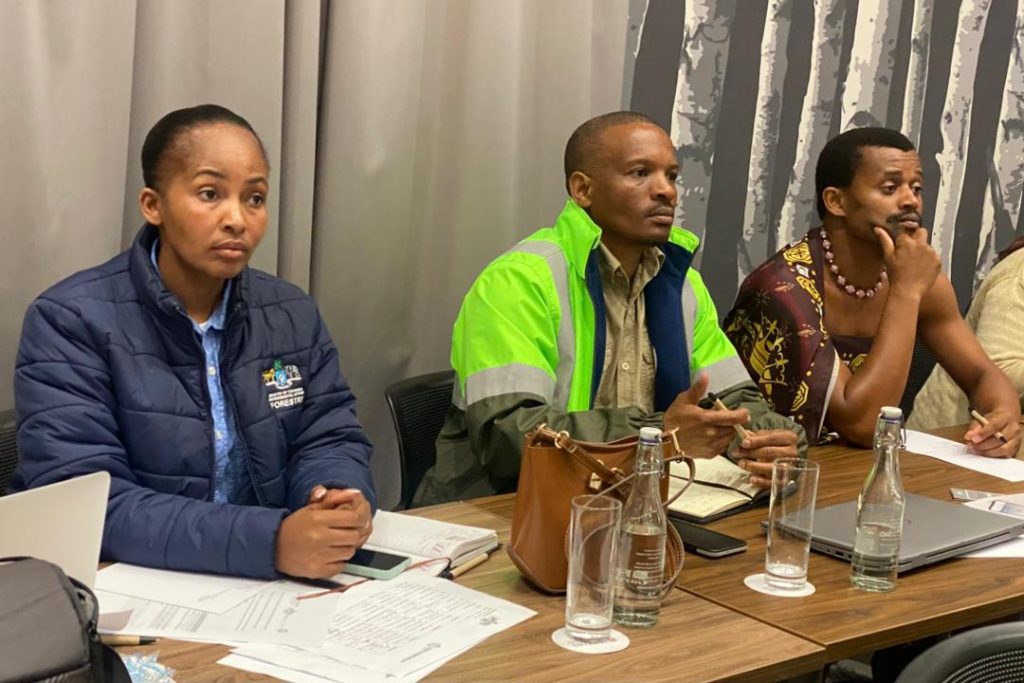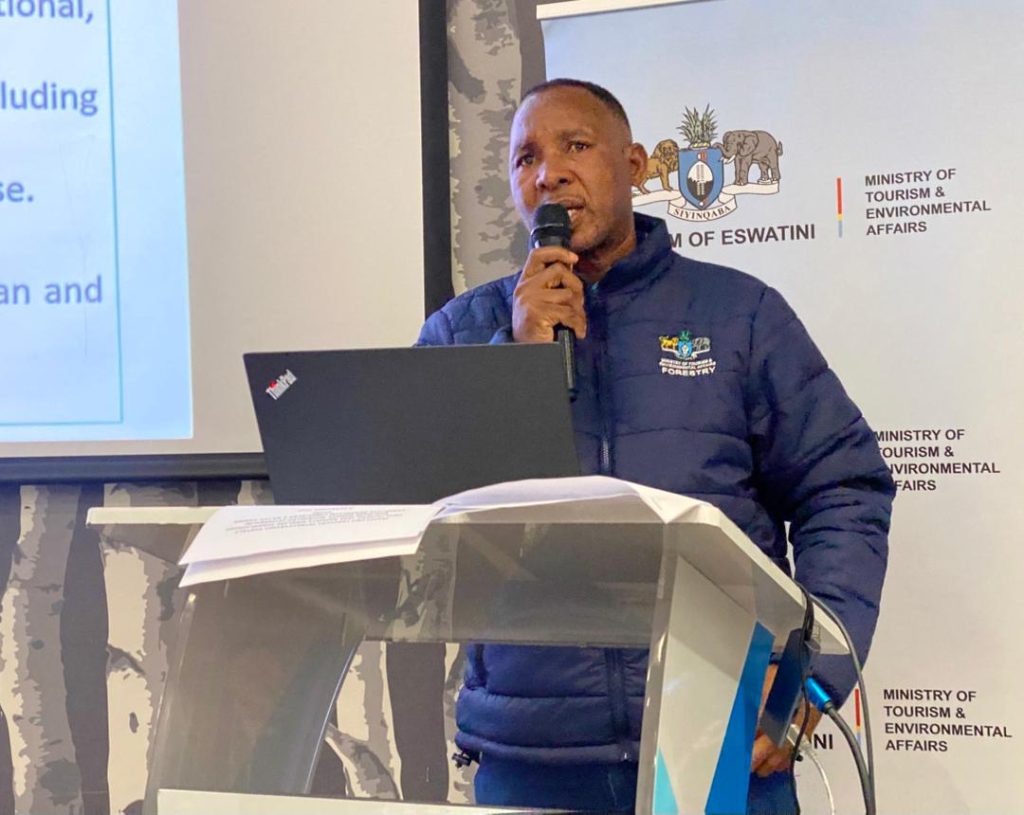
By Tlalane Dlamini
Eswatini’s forestry sector is entering a new era of strategic collaboration as government, traditional leadership, and international partners unite to chart a shared path for sustainable forest management and green investment.
The three-day Regional Forestry Engagement, held from November 3 to 5, 2025, at the Hilton Hotel in Mbabane, brought together Chiefs from the Hhohho, Manzini, and Shiselweni regions, alongside technical experts and development partners, to strengthen coordination in forest governance, conservation, and rural economic empowerment.
Organized by the Department of Forestry under the Ministry of Tourism and Environmental Affairs, the forum aimed to build consensus among the country’s traditional leaders—long recognized as custodians of communal land—on critical issues, including deforestation, wildfire prevention, ecosystem restoration, and green enterprise development.
Defining the Future: The Draft Forestry Bill

At the heart of the discussions was the Draft Forestry Bill, a landmark policy proposal that redefines how Eswatini manages and monetizes its forest resources. Delivering the keynote address, Minister of Tourism and Environmental Affairs, Jane Mkhonta Simelane (MP), emphasized that forest protection is no longer a task for government alone but a shared national responsibility.
The proposed legislation aims to strengthen the country’s response to deforestation and wildfire management while enabling local entrepreneurship through value-added industries such as timber processing, furniture manufacturing, and eco-tourism.
Minister Mkhonta- Simelane also called upon Chiefs to enforce the existing 2002 Forestry Policy, which empowers traditional authorities to safeguard natural forests and curb illegal harvesting and firewood sales.
Global Partnerships and Technical Collaboration
The event underscored the growing international confidence in Eswatini’s commitment to sustainable natural resource management. Representatives from the World Bank and other development partners reaffirmed their support for Eswatini’s forestry agenda, particularly in aligning conservation efforts with climate resilience and investment readiness.
A series of technical presentations provided an in-depth assessment of the sector’s challenges and emerging opportunities. Highlights included:
• Overview of the Department of Forestry’s Strategic Direction – outlining institutional reforms and national priorities.
• ProGreen Project and Sustainable Wattle Management Framework – focusing on responsible investment, certification, and supply chain integrity.
• Forest Protection Act and Community-Based Conservation Models – detailing the legal framework and shared benefits of collaborative forest governance.
• Wetland and Biodiversity Conservation (NBSAP 3.0) – emphasizing the role of protected ecosystems in water resource management and climate adaptation.
• Land Degradation and Livelihood Enhancement – presented by the Ministry of Agriculture, highlighting integrated land management strategies.
• Fire Preparedness and National Disaster Response – led by the National Disaster Management Agency (NDMA), underscoring the need for proactive community-level interventions.
Cultural Stewardship Meets Economic Strategy
Traditional leaders play a central role in shaping the conversation around balancing conservation with cultural and economic imperatives. Speaking on behalf of the Chiefs, Chief Gija expressed deep concern over the loss of indigenous tree species, framing it as not just an ecological issue but a threat to Eswatini’s cultural heritage.
This sentiment reflects the growing recognition that environmental policy in Eswatini must respect traditional knowledge systems while integrating modern sustainability practices.


Positioning for Green Growth
The discussions also touched on the challenges faced by small-scale forestry enterprises. Senior Forestry Officer, Mbekeni Nxumalo, recalled how local wattle farmers lost access to lucrative export markets due to non-compliance with Forest Stewardship Council (FSC) standards. He emphasized the vital role of Chiefs in verifying land ownership, promoting compliance, and supporting certification initiatives that can reopen international markets.
The Regional Forestry Engagement concluded with a renewed commitment from all stakeholders to transform Eswatini’s forests into engines of sustainable economic growth. The Ministry’s call for coordinated enforcement of forestry regulations and responsible harvesting practices signals a decisive step toward a greener, more resilient, and inclusive economy.
As Eswatini positions itself as a regional model for community-driven conservation and green investment, the partnerships forged in Mbabane represent more than environmental stewardship—they mark the foundation of a new economic frontier rooted in sustainability and shared prosperity.


